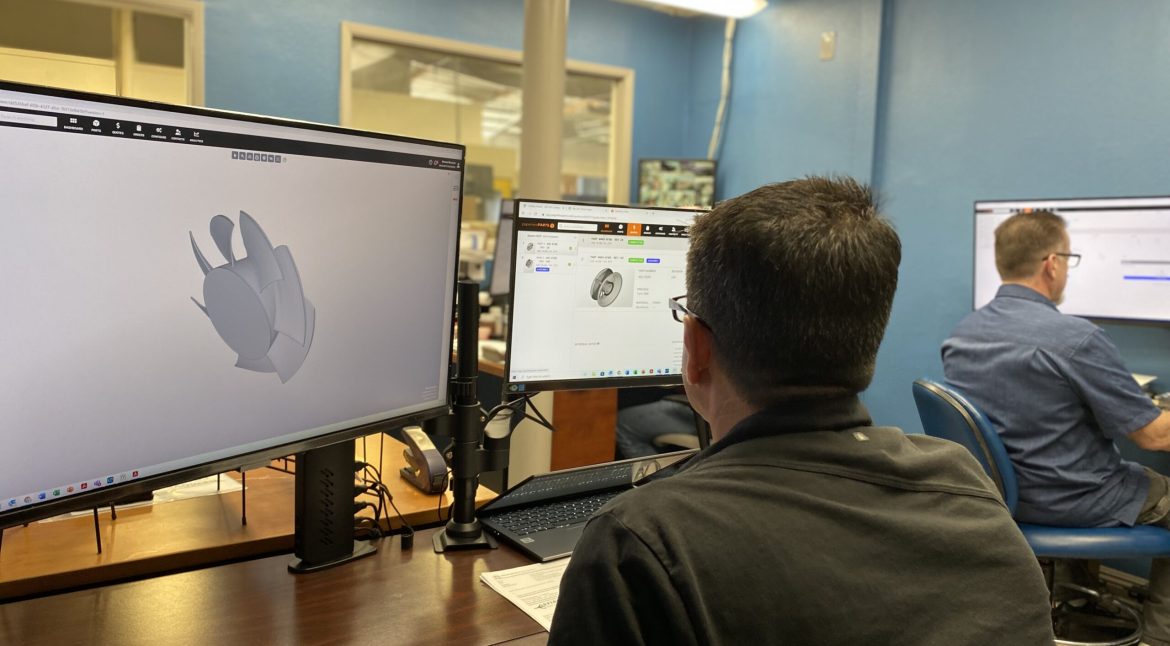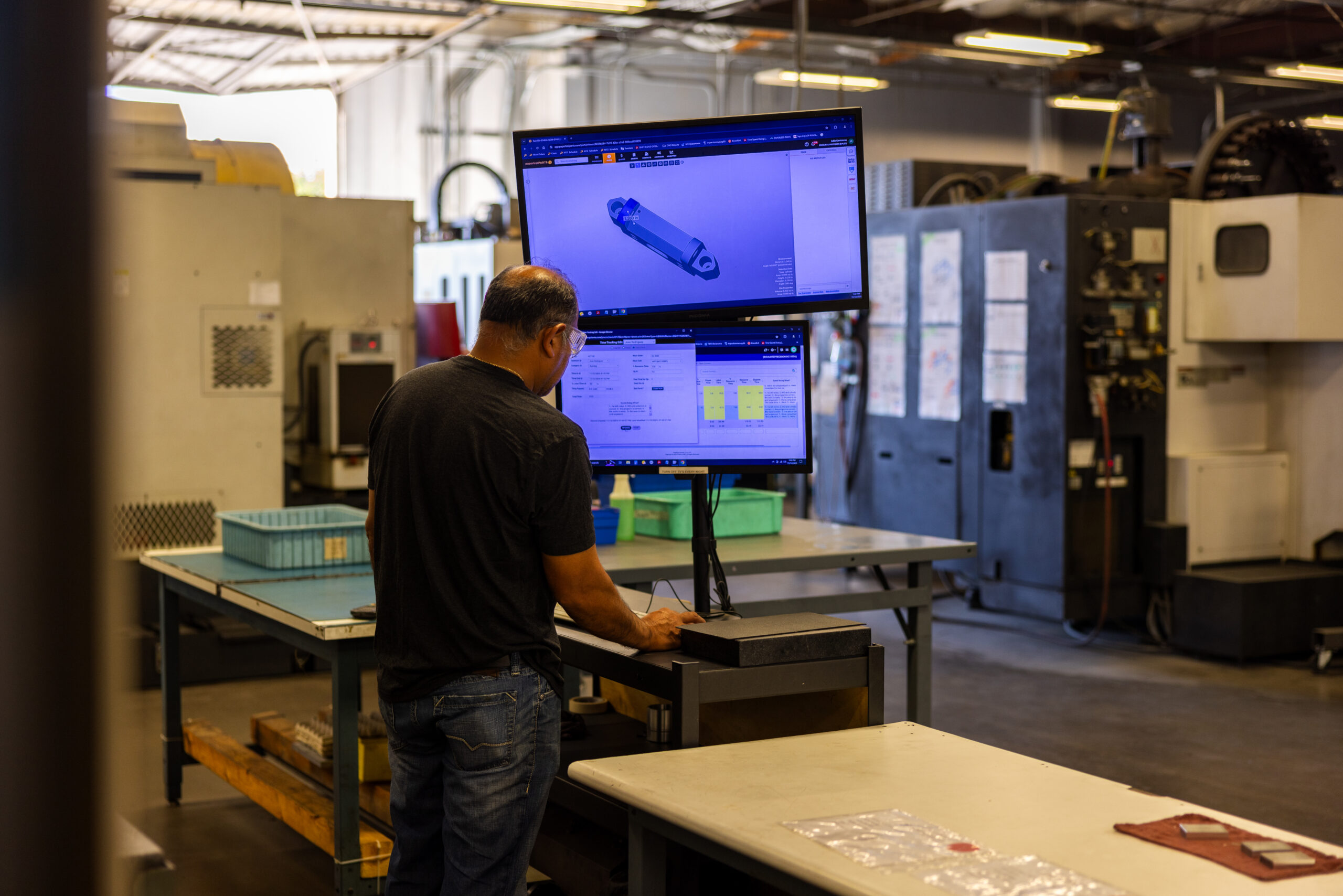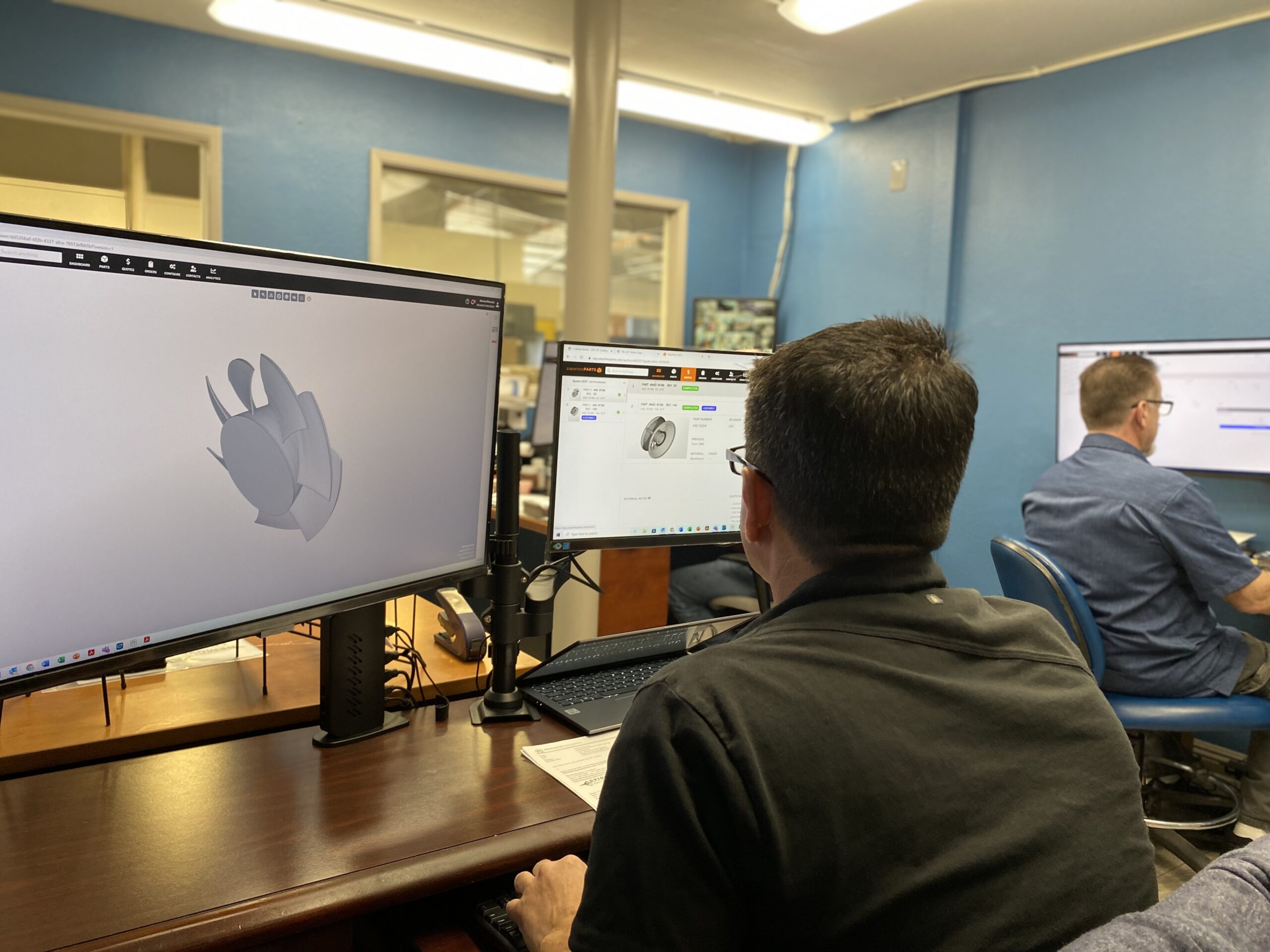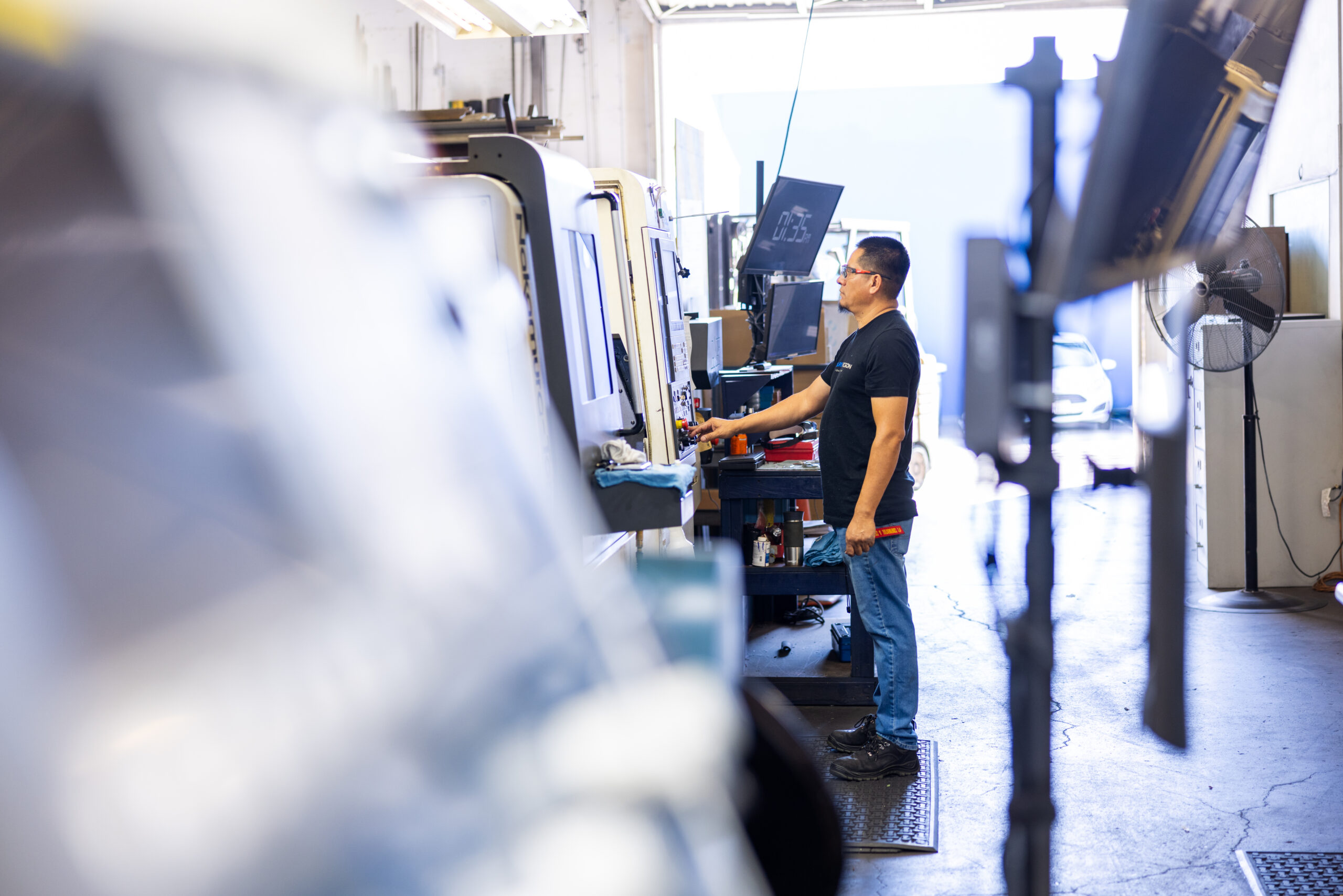Designing components for manufacturability is crucial to ensuring efficiency, quality, and cost-effectiveness. As a trusted contract manufacturer, RPI has seen how thoughtful design choices can make a significant impact on our customers’ outcomes. Below are some key considerations engineers should keep in mind when designing parts for manufacturability.
1. Be Strategic in Your Material Selections, When Possible
Material choice directly impacts manufacturing efficiency and cost. In highly regulated industries like aerospace machining, material selection may be out of your control. However, when designers have flexibility, considering machinability and availability can streamline production.
As a Southern California machine shop, RPI is fortunate to have access to a vast network of material suppliers, making material availability more likely than at shops in other parts of the country. However, if an exotic material is difficult to source, we can recommend viable alternatives that ensure the fit, form, and function necessary for the part’s final application.
2. Limit Thin Walls and Small Features
While complex geometries are sometimes necessary, excessively thin walls or intricate features can present challenges in manufacturability. Thin walls can lead to deflection during machining, resulting in tolerance issues. Likewise, too-small features increase cycle times and may require specialized tooling.
Our advice? Try to avoid designing walls that are too thin, as they may require additional support structures or specialized fixturing. And when possible, simplify small features to reduce machining complexity and improve repeatability.
3. Be Mindful with Threaded Features
Threaded features are a necessary component in many parts, but optimizing their design can improve efficiency. Whenever possible, we recommend using standard thread sizes rather than custom threads to reduce machining time and tooling costs. Additionally, we suggest minimizing the number of threaded holes and avoiding blind holes when possible. Threaded holes are easier to machine and inspect when they go all the way through. When a blind hole is necessary, however, make sure it has sufficient clearance to accommodate threading tools.
4. Plan for Secondary Operations
Many machined parts require secondary operations such as coating, heat treatment, or casting machining. It’s important to be proactive when designing parts that require these additional ops, as many of these processes can impact final dimensions and tolerances. Heat treating, for instance, can cause material expansion or warping, which affects the final fit and function of a part. In addition, coatings such as disulfide treatments add to part thickness and should be factored into the initial design.
To avoid potential pitfalls, make it a point to collaborate with your contract manufacturer as early in the process as possible. By learning the implications of these secondary operations right away, designers can prevent rework, reduce costs, and improve lead times.
5. Maintain Open Communication with Your Contract Manufacturer
Collaboration with your precision machining company from the outset can significantly enhance manufacturability. Advances in technology have made real-time communication easier than ever, allowing for seamless design reviews and problem-solving sessions. Our customers regularly utilize video conferencing to share drawings, discuss setups, and review manufacturing processes with us before production begins.
Having early discussions about anything from material sourcing to tolerance requirements to secondary operations prevents costly revisions, roadblocks, and delays down the line—a big win for all parties.
Partner with RPI for Precision Machining and Advice on Design for Manufacturability
By incorporating these manufacturability considerations into the design process, engineers can achieve several benefits, including:
- Lower costs
- Improved efficiency
- Enhanced repeatability
- More consistent quality
- Faster inspection processes
If you’re looking for a trusted contract manufacturer who understands the intricacies of manufacturability and can help you optimize designs for efficiency and cost-effectiveness, request a quote today!




